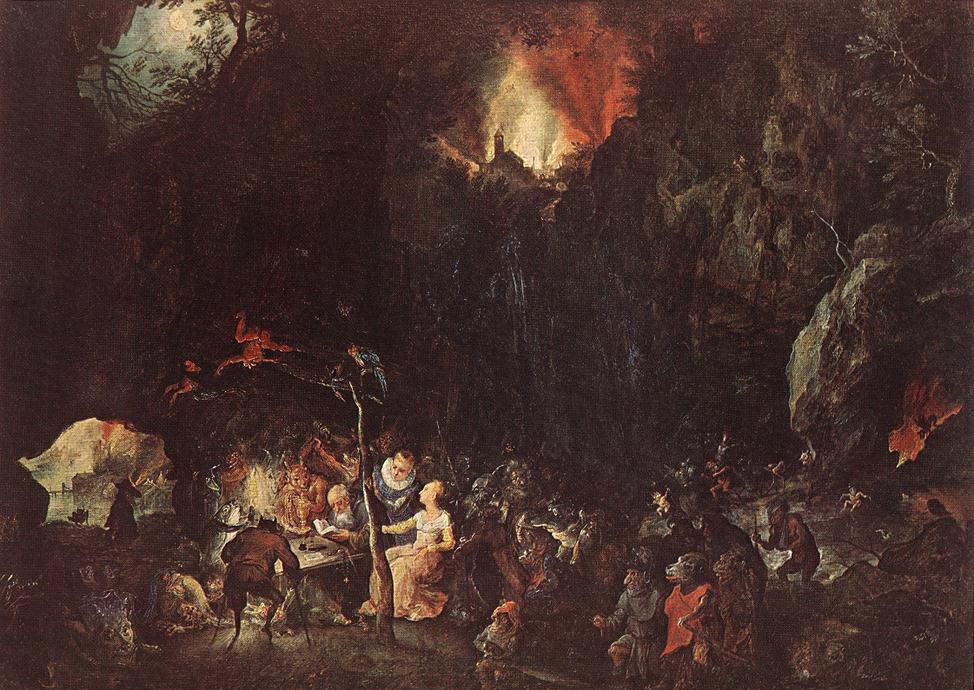Description
The painting "Temptation of St Anthony" by Jan Brueghel the Elder is a 17th century masterpiece that combines the technique of oil on panel with the artist's skill to create a fascinating and detailed composition. The original size of the work, 20.9 x 29 cm, demonstrates Brueghel's ability to create an exceptional work of art in a small space.
Brueghel's artistic style is unique, standing out for his realism and precision in the representation of nature. The "Temptation of St Anthony" painting is a perfect example of this style, as the artist has managed to create a detailed and realistic scene that seems to come to life before the eyes of the beholder.
The composition of the painting is impressive, with a large number of elements that combine to create a complex and fascinating scene. The figure of San Antonio is in the center of the image, surrounded by demons who try to tempt him. In the background, a burning city can be seen, suggesting the presence of Hell.
The use of color in the painting is another interesting aspect. Brueghel uses a rich and vibrant color palette, which brings the scene to life and creates a sense of movement and dynamism. The red and orange tones of the flames contrast with the cold, dark tones of the demons, creating a visual tension that makes the painting even more interesting.
The history of the painting is also fascinating. The work was created in the 17th century and is inspired by the story of Saint Anthony, a Christian saint who retired to the desert to meditate and fight against the temptations of the devil. The painting is a representation of Saint Anthony's fight against evil and his final triumph over temptation.
Lastly, there are many little-known aspects of the painting that make it even more interesting. For example, Brueghel is known to have worked in collaboration with other artists to create the work, suggesting that the painting was a major and ambitious project. Furthermore, the painting has been the subject of numerous interpretations and analyses, demonstrating its importance in art history.

